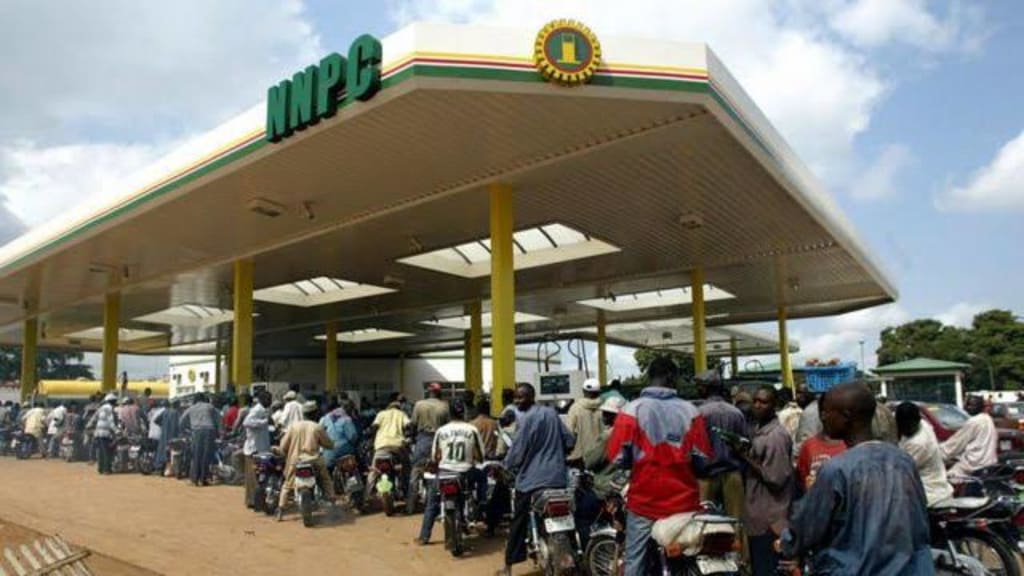"Fueling the Debate: Exploring the Ups and Downs of Nigeria's New Fuel Price"
How the new fuel price will affect the economy of the country.

The Nigerian government recently announced a new fuel price, which has generated mixed reactions from citizens and stakeholders. The new fuel price is expected to impact the country's economy in several ways, ranging from positive to negative. This essay will discuss the potential impacts of the new fuel price on the Nigerian economy.
One of the most significant impacts of the new fuel price on the Nigerian economy is the potential for inflation. As fuel prices rise, the cost of transportation and goods and services that rely on fuel for production and distribution also increases. This increase in production costs is then passed on to consumers, resulting in higher prices for goods and services. The rise in prices can lead to inflation, which reduces the purchasing power of consumers and impacts the overall economy negatively.
Moreover, the new fuel price will impact the country's balance of payments. Nigeria is a major oil producer, and the price of oil significantly impacts the country's balance of payments. A higher fuel price could lead to an increase in the country's export earnings, which would improve the balance of payments. However, the increase in production costs may reduce the country's competitiveness in the global market, leading to a decline in exports. This could result in a negative impact on the balance of payments.
Furthermore, the new fuel price could impact the country's fiscal balance. The Nigerian government heavily subsidizes fuel prices, and the new fuel price could lead to a reduction in government expenditure on fuel subsidies. This reduction in expenditure could improve the government's fiscal balance, which would be beneficial for the overall economy. However, the reduced expenditure on fuel subsidies could lead to a decrease in government revenue, which could negatively impact the economy.
Additionally, the new fuel price could lead to a shift in the pattern of consumption in the country. The increase in fuel prices could lead to a decrease in demand for fuel and a shift towards alternative sources of energy. This shift could lead to an increase in investment in alternative energy sources, which would be beneficial for the economy in the long run. However, the shift in consumption patterns could also lead to a decrease in demand for goods and services that rely on fuel, which could negatively impact businesses in the short run.
Moreover, the new fuel price could impact the country's employment rate. The rise in production costs could lead to a decrease in the production of goods and services, leading to a decline in the demand for labor. This could result in job losses and a rise in the unemployment rate, which could have a negative impact on the overall economy. However, the increase in investment in alternative energy sources could lead to the creation of new job opportunities, which would be beneficial for the economy in the long run.
In conclusion, the new fuel price will impact the Nigerian economy in various ways, ranging from positive to negative. The potential impacts include inflation, a shift in the pattern of consumption, a change in the country's balance of payments, a shift in the employment rate, and a change in the government's fiscal balance. The government must carefully monitor the impacts of the new fuel price and take measures to mitigate the negative impacts on the economy. Additionally, the government should continue to invest in alternative energy sources to reduce the country's reliance on fuel and improve the overall economic performance of the country.
For car users this tip be can an effective way to lower the cost of movement amidst fuel increase.
1. Plan your budget: With the increase in fuel prices, it is essential to adjust your budget accordingly. Plan your expenses and prioritize your spending.
2. Use public transportation: Consider using public transportation to reduce your fuel expenses. Taking Keke, okada or the bus can be a cost-effective way to get around.
3. Consider alternative modes of transportation: Consider alternative modes of transportation such as walking, cycling, These options can help you save money on fuel costs and improve your health.
4. Increase your fuel efficiency: Improve your car's fuel efficiency by maintaining it regularly, driving at a steady speed, avoiding aggressive driving, and reducing weight in your vehicle.
5. Explore renewable energy sources: Consider exploring renewable energy sources such as solar power as an alternative to traditional fuel-powered engines.





Comments
There are no comments for this story
Be the first to respond and start the conversation.